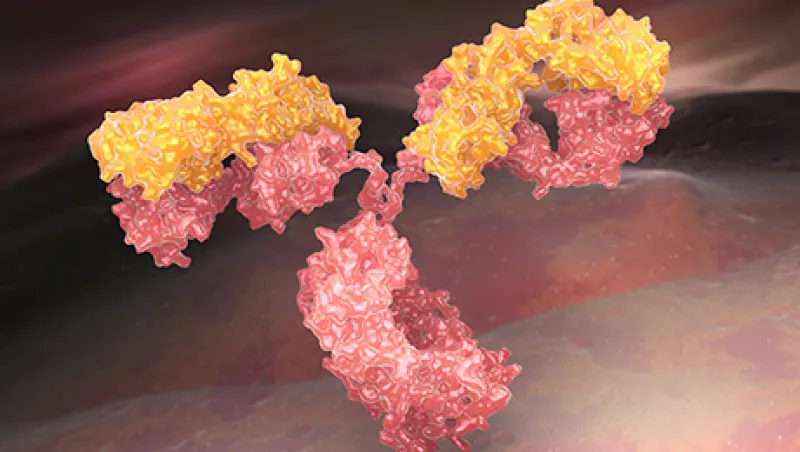During his State of the Union address in January, President Barack Obama announced that Vice President Joe Biden would lead a $1 billion cancer initiative — known as the National Cancer Moonshot — aimed at backing the most promising research in the fight against the disease. Central to this goal is a growing sector of medical science known as immunotherapy, a method of treating cancer or chronic disease by stimulating a patient’s immune system, as opposed to attacking tumors or symptoms directly. The shift to this approach, which has achieved significant success in recent years and is expected to expand rapidly, means a move away from the often debilitating side effects of treatments like chemotherapy. For some patients, it also means a better chance of hearing the words “cancer free.”
Around the same time as Obama’s Moonshot news, former president Jimmy Carter announced that his cancer, which had spread to both his liver and his brain, could no longer be detected by his doctors. Carter had undergone treatment with pembrolizumab, a monoclonal antibody developed by Merck & Co. that is more commonly known as Keytruda. The drug, which is delivered intravenously, works by blocking a pathway that some cancer cells use to avoid detection by the immune system. It’s just one example of an expanding field that is grabbing the attention of both the medical community and the investment world.
“Immunotherapy has the potential to literally end cancer as we know it,” Biden told a crowd at Johns Hopkins University in March. He was there to recognize the $50 million in donations to the school from both former New York City mayor Michael Bloomberg and philanthropist Sidney Kimmel, specifically for the purpose of further research into immunotherapy to cure cancer. Though few doctors and researchers are willing to use the word “cure” — even Carter’s doctors note that although he has no sign of cancer now, the tumors could return — the consensus is that immunotherapy will drastically change the way cancer is treated, and dramatically improve many patients’ outcomes. But prior to the past few years, investors interested in cancer treatment had few options. They could buy individual stocks of companies working on oncology therapies, which involves a high level of risk, or invest in a biotech-focused exchange-traded fund. The problem with the latter, according to investor Brad Loncar, is that biotech is not just one thing.
Early last year Loncar created an index to track these companies — everything from pharmaceuticals giant Pfizer to Kite Pharma, a smaller, Santa Monica, California–based outfit that expects to receive regulatory approval within the next year for a therapy to treat diffuse large B-cell lymphoma. In October 2015 Loncar licensed the index to Oklahoma City–based Exchange Traded Concepts, which launched an investment vehicle based on it.
Known as the Loncar Cancer Immunotherapy ETF, or CNCR, the vehicle is still in its early days; it had about $19.6 million in assets as of June 2. The underlying index consists of the 30 leading companies in the immunotherapy sector, which naturally includes some of the major players in any biotech or pharma index — Pfizer, AstraZeneca — but also includes nearly two dozen smaller biotech firms working on second- and third-generation immunotherapy drugs that aren’t yet on the market but are promising. Currently, those include Kite as well as Seattle-based Juno Therapeutics, which recently reported promising clinical results for a therapy that aims to teach a patient’s white blood cells to kill leukemia cells. Also included in the ETF: Culver City, California–based NantKwest, a cancer immunotherapy company founded by billionaire doctor Patrick Soon-Shiong that achieved the highest-ever value for a biotech initial public offering when it went public in July 2015, and Woodland Hills, California–based Lion Biotechnologies, which licenses immunotherapy technology known as tumor-infiltrating lymphocytes, or TILs, from the National Cancer Institute for clinical-stage cancer treatments. The equal-weighted ETF is rebalanced every six months, when a Loncar advisory committee considers public offerings, FDA approvals or changes in strategic focus and adjusts accordingly.
“It’s a basket of 30 different companies, but within that there are also over a dozen different immunotherapy approaches,” says Loncar, who operates a small single-family office in Lenexa, Kansas, near Kansas City. “Some will work, and some won’t. We’re focusing on the theme itself, rather than trying to pick winners.”
The ETF’s performance so far has been fairly well correlated with the larger pharmaceuticals industry, with a few important differences. Since its October 14 launch, CNCR was up 26 percent at its peak and down 27.1 percent at its lowest point. The largest pharmaceuticals ETF, PowerShares Dynamic Pharmaceuticals, was up 17.9 percent at its peak and down 11 percent at its lowest.
“CNCR is much more volatile,” Loncar says, noting that a lot of immunotherapy research is still in the developmental stage. “My expectation is that over the short term, it will likely perform worse than pharma during bad times and better during good times. Over the long term, we of course hope that advances in immunotherapy will cause it to outperform.”
CNCR was up 13.7 percent between May 18, when information about the annual meeting of the American Society of Clinical Oncology was released, and June 6, the second-to-last day of the conference. “This outperformance is because immunotherapy companies have been releasing good news here,” Loncar said in an e-mail from the conference, which ends today. Juno and Kite both announced at the conference their expectation for 2017 approval of several immunotherapies.
The fact that the ASCO meeting received as much media attention as it did — Fortune, Huffington Post, TheStreet.com and Forbes all published stories about it — is itself a sign of how quickly immunotherapy is becoming a household word, at least in the medical and financial sectors.
The immunotherapy market is expected to grow 11 percent annually and reach $197 billion by 2020, according to London-based technology research and advisory firm Technavio. Immune checkpoint inhibitors, like Merck’s Keytruda, are predicted to be the fastest-growing piece of the market, expanding more than 26 percent annually over the next four years. But even with the immunotherapy sector getting so much attention, a niche investment focus in this direction has its risks.
“We’re finally at a point where there’s enough understanding of the technology, and understanding of genomics, to say why some people get cancer and some don’t, and what it is about the body that has changed that is allowing this cancer to take place,” says Howard Krein, a cancer surgeon and senior director of health policy and innovation at the Sidney Kimmel Cancer Center at Thomas Jefferson University Hospital in Philadelphia and chief medical officer at digital health start-up network StartUp Health. “We haven’t even scratched the surface of what immunotherapy can do for chronic disease. It’s a huge opportunity for development over the next few years.”
Follow Kaitlin Ugolik on Twitter at @kaitlinugolik.
Get more on ETFs.






